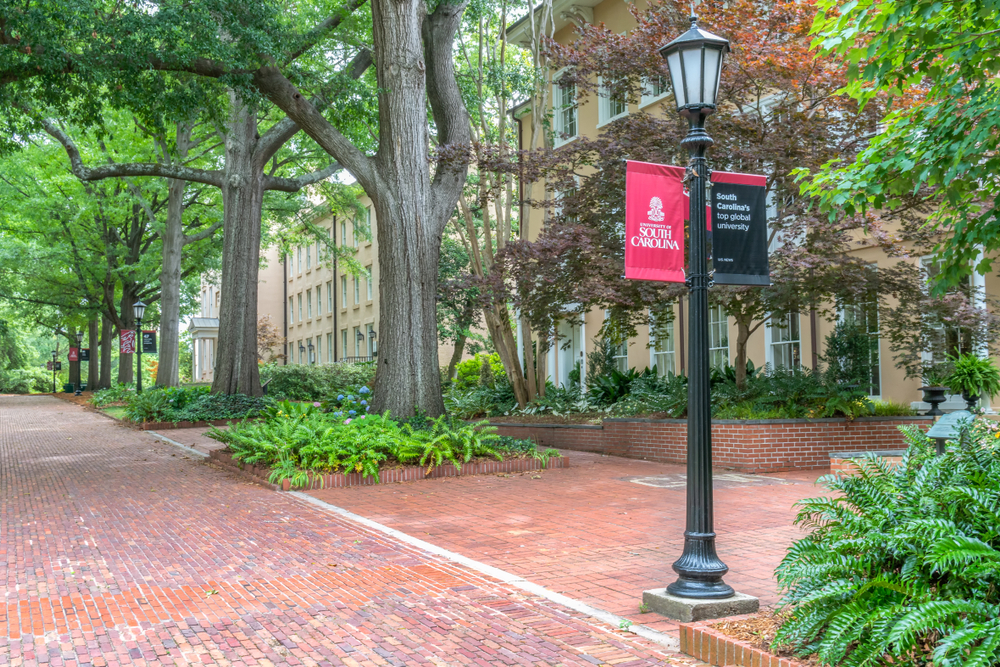How USC is looking to help students ‘bridge the gap’ between job preparation and academia
COLUMBIA — For years, higher education media has been awash with discussion about the apparent decline in the humanities, with some pointing toward shrinking enrollments as evidence that would-be students are too concerned about post-graduation job prospects to study subjects once at the core of universities’ curriculum.
The University of South Carolina hasn’t been immune from those trends — data shows a decade-long decline in the number of degrees awarded in majors like history, English and foreign language, versus an increase from its more directly career-oriented degrees like business or engineering and computing. But the university’s academic leadership thinks it has a solution.
If students are concerned their degree, whatever it may be, won’t give them the job-oriented soft skills they want, simply let them add those skills onto their studies. Four new interdisciplinary undergraduate certificates rolled out at USC during the 2023-24 school year did just that, offering students programs in data analytics and visualization, project leadership and management, strategic thinking and communications, and digital studies.
“All in all, when we’re done, we want to graduate students who can go on to get a job that is fulfilling for them and which they’re good at doing,” Provost Donna Arnett said.
The four certificates, which each consist of four classes, are a product of an interdisciplinary advisory committee made up of faculty from across the campus. Some of the classes plot onto the university’s general education requirements, and classes that students can take for the certificates range from computer science to journalism or statistics.
The four certification subjects were intended to correspond to skills employers said are needed. Having those skills helps would-be workers when they enter the job market. Citing a Deloitte study, Arnett said history majors who graduated with a project management certificate had starting salaries $18,000 higher than their peers. “We’re hoping to make our graduates more competitive,” she said.
Combined, the four certificate programs had 453 students enrolled during the spring 2024 semester, and graduated a combined 81 students in May. The university is expecting to see that number grow but is looking to take a “very measured” approach to creating more of the certificates — Arnett suggested artificial intelligence as a possible area of future growth.
Similar certificate programs have grown across U.S. universities, according to Robert Townsend, director of humanities, arts and culture programs at the American Academy of Arts and Sciences. The programs not only give graduates an additional accolade on their resumes, he said, but help them better show prospective employers that they have skill that could be of practical value. That boost can be particularly helpful for humanities graduates, who Townsend said can sometimes struggle with pitching the soft skills that their classes taught them, such as writing and research.
“It’s like, you’ve got lots of useful skills,” he said of students. “Somebody needs to just help them articulate it, understand it and start to think about what sorts of employers want those skills.”
Reach Ian Grenier at 803-968-1951. Follow him on X @IanGrenier1.

Author: STAFF HERE Chapin
CHAPIN STAFF WRITER The CHAPIN STAFF WRITER represents the experienced team at HEREchapin.com, your go-to source for actionable local news and information in Chapin, Lexington County, and beyond. Specializing in "news you can use," we cover essential topics like product reviews for personal and business needs, local business directories, politics, real estate trends, neighborhood insights, and state news affecting the area—with deep expertise drawn from years of dedicated reporting and strong community input, including local press releases and business updates. We deliver top reporting on high-value events such as the Chapin Christmas Parade, Fourth of July Celebration, and the Chapin Fall Festival. Our coverage extends to key organizations like the Chapin Chamber of Commerce and the Lexington School District One, plus leading businesses in retail and recreation that power the local economy such as Lake Murray Tourism and the Chapin Visitor Information. As part of the broader HERE network, including HEREaiken.com, HEREbeaufort.com, HEREchapin.com, HEREcharleston.com, HEREclinton.com, HEREcolumbia.com, HEREgeorgetown.com, HEREgreenwood.com, HEREgreenville.com, HEREhiltonhead.com, HEREirmo.com, HEREmyrtlebeach.com, HEREnewberry.com, HERErockhill.com, HEREspartanburg.com, HEREaustin.com, HEREcollegestation.com, HEREdallas.com, HEREhouston.com, and HEREsanantonio.com, we provide comprehensive, credible insights into South Carolina's dynamic landscape.





